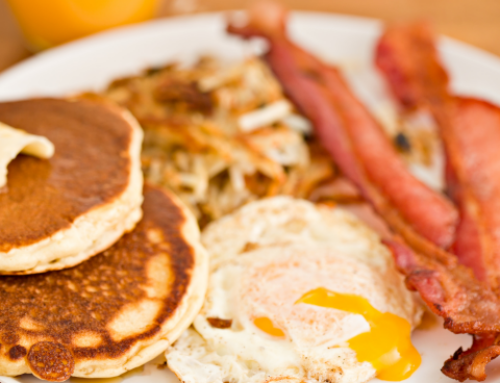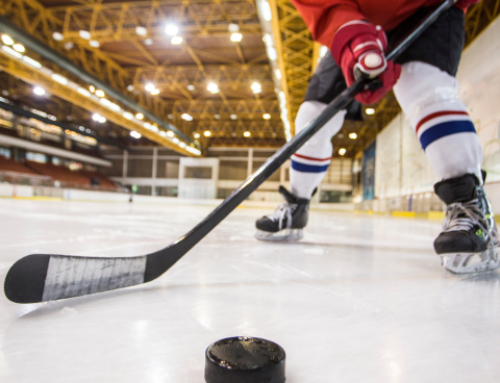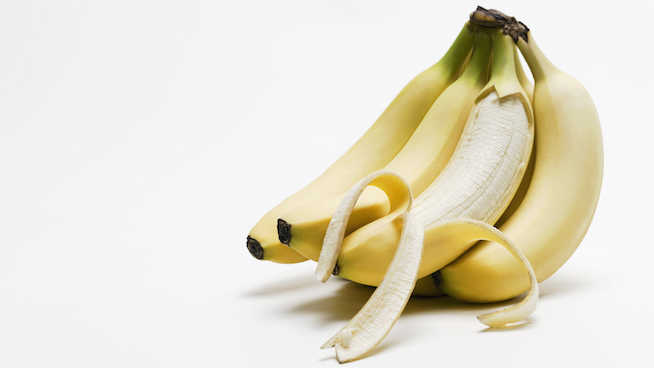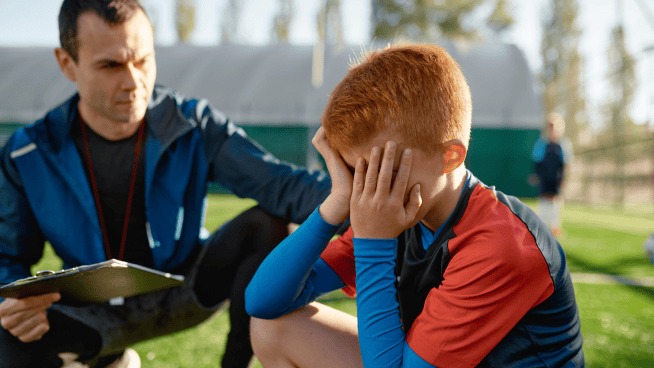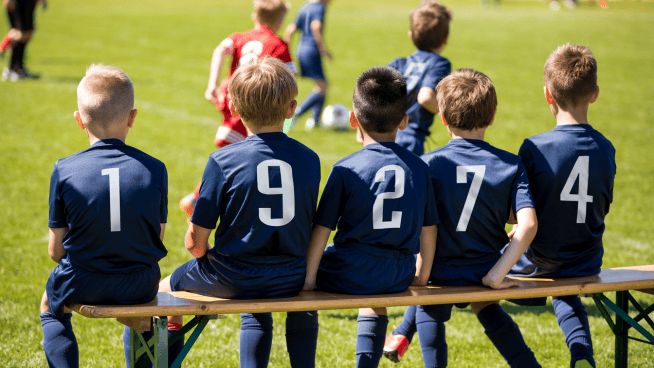The Post-Workout Meal: It’s Invaluable
Not seeing the results you’re looking for from your training efforts? Believe your training routine is the cause of all your problems?
Before you scrap your workout, maybe you should look to what you are putting into your mouth rather than what you are putting on the bar. The real answer to your training problems may lie in what you are eating—or rather, not eating—after your workouts.
The proper post-workout meal can be the difference between training success and failure. Check out this Q & A for all the info you need to know about the post-workout meal.
Q: What is the purpose of the post-workout meal?
A: There are two goals of the post-workout meal.
Goal No. 1: To help the muscles recover from an energy standpoint. During a workout, your body uses its stored energy to perform exercises, and this energy needs to be replaced as soon as possible.
Goal No. 2: To help “build” muscle.. Your muscles break down during workouts, and they need to be rebuilt in order to see positive results.
Q: What should athletes eat for a post-workout meal?
A: To accomplish Goal No. 1 (replenish your energy), you need to eat or drink carbohydrates with a high glycemic index (see table). These foods aid in the production of glycogen, which acts as fuel for your muscles.
To accomplish Goal No. 2 (build muscle), you must consume a high-quality protein. Protein will help in the recovery and rebuilding of the muscle tissue.
Q: How soon after a workout should an athlete eat?
A: Timing is critical. The faster the body is replenished with high glycemic carbohydrates, the better. Carbohydrates should be eaten within 30 minutes of a workout. This will allow the body to achieve maximum absorption when circulation is at its highest, and nutrients move about the body more easily.
One hour after a workout, you should consume some type of high-quality protein. At this time, your body will be looking for protein to repair the muscle damage caused by the workout.
Q: What foods should athletes stay away from in the post-workout meal?
A: Foods to avoid are those with a high fiber or high fat content. These types of foods will slow the absorption of the necessary carbohydrates needed to replenish the fuel stores in the muscles.
Q: What should the breakdown between carbs and protein be in the meal?
A: The actual amount of carbohydrates is based on your body weight, but as a rule of thumb, it is best to get approximately 50 grams of carbohydrates.
As for protein, the general rule is about .5 grams of protein for every kilogram of body weight. So, for a 180-pound athlete, this means approximately 41 grams of protein (41 grams of protein = (180 lbs./ 2.2 kg) x .5.) It is this combination that is most beneficial in repairing and building muscle.
Q: How effective are meal replacements and protein shakes as post-workout meals?
A: Meal replacements can be beneficial if they contain the proper ratios of carbohydrates and protein. They are convenient and generally taste good. The only problem with meal replacements is that their ratio of carbs to protein is not usually correct. There is an adequate amount of protein, but an inadequate amount of high glycemic index carbohydrates.
One possible solution is to mix the meal replacement with a sports drink like Gatorade to increase the amount of these carbohydrates. But again, watch the amount of fat and fiber, which will slow the refueling process.
Q: How important is the post-workout meal to recovery and overall athletic success?
A: A correct post-workout meal may mean the difference in gaining that extra 10 pounds that you need, or having the energy to be able to complete the next day’s workout.
Again, timing is the key to success. The body needs carbohydrates to replenish the depleted stores of energy or glycogen and protein to rebuild the muscle that has just been broken down by strenuous exercise. The faster the recovery, the more effective you can become by being able to compete at a high level each day.
High Glycemic Index Foods:(Note: The glycemic index is a scale describing how fast a food is converted to glucose in the blood. The higher the number the better.)Beverages:Gatorade…..91
Carbonated soft drink…..68
Vegetables:Potato, Baked…..85
Potato, Microwaved…..82
Bread and Grain Products:Corn Flakes…..84
Graham Crackers…..74
Bagel…..72
Bread, White…..70
Bread, Whole Wheat…..69
Grape Nuts…..67
Oatmeal…..61
White Rice…..56
Brown Rice…..55 Fruits:Honey…..73
Watermelon…..72
Raisins…..64
Orange Juice…..57
Apple Juice…..41
RECOMMENDED FOR YOU
MOST POPULAR
The Post-Workout Meal: It’s Invaluable
Not seeing the results you’re looking for from your training efforts? Believe your training routine is the cause of all your problems?
Before you scrap your workout, maybe you should look to what you are putting into your mouth rather than what you are putting on the bar. The real answer to your training problems may lie in what you are eating—or rather, not eating—after your workouts.
The proper post-workout meal can be the difference between training success and failure. Check out this Q & A for all the info you need to know about the post-workout meal.
Q: What is the purpose of the post-workout meal?
A: There are two goals of the post-workout meal.
Goal No. 1: To help the muscles recover from an energy standpoint. During a workout, your body uses its stored energy to perform exercises, and this energy needs to be replaced as soon as possible.
Goal No. 2: To help “build” muscle.. Your muscles break down during workouts, and they need to be rebuilt in order to see positive results.
Q: What should athletes eat for a post-workout meal?
A: To accomplish Goal No. 1 (replenish your energy), you need to eat or drink carbohydrates with a high glycemic index (see table). These foods aid in the production of glycogen, which acts as fuel for your muscles.
To accomplish Goal No. 2 (build muscle), you must consume a high-quality protein. Protein will help in the recovery and rebuilding of the muscle tissue.
Q: How soon after a workout should an athlete eat?
A: Timing is critical. The faster the body is replenished with high glycemic carbohydrates, the better. Carbohydrates should be eaten within 30 minutes of a workout. This will allow the body to achieve maximum absorption when circulation is at its highest, and nutrients move about the body more easily.
One hour after a workout, you should consume some type of high-quality protein. At this time, your body will be looking for protein to repair the muscle damage caused by the workout.
Q: What foods should athletes stay away from in the post-workout meal?
A: Foods to avoid are those with a high fiber or high fat content. These types of foods will slow the absorption of the necessary carbohydrates needed to replenish the fuel stores in the muscles.
Q: What should the breakdown between carbs and protein be in the meal?
A: The actual amount of carbohydrates is based on your body weight, but as a rule of thumb, it is best to get approximately 50 grams of carbohydrates.
As for protein, the general rule is about .5 grams of protein for every kilogram of body weight. So, for a 180-pound athlete, this means approximately 41 grams of protein (41 grams of protein = (180 lbs./ 2.2 kg) x .5.) It is this combination that is most beneficial in repairing and building muscle.
Q: How effective are meal replacements and protein shakes as post-workout meals?
A: Meal replacements can be beneficial if they contain the proper ratios of carbohydrates and protein. They are convenient and generally taste good. The only problem with meal replacements is that their ratio of carbs to protein is not usually correct. There is an adequate amount of protein, but an inadequate amount of high glycemic index carbohydrates.
One possible solution is to mix the meal replacement with a sports drink like Gatorade to increase the amount of these carbohydrates. But again, watch the amount of fat and fiber, which will slow the refueling process.
Q: How important is the post-workout meal to recovery and overall athletic success?
A: A correct post-workout meal may mean the difference in gaining that extra 10 pounds that you need, or having the energy to be able to complete the next day’s workout.
Again, timing is the key to success. The body needs carbohydrates to replenish the depleted stores of energy or glycogen and protein to rebuild the muscle that has just been broken down by strenuous exercise. The faster the recovery, the more effective you can become by being able to compete at a high level each day.
High Glycemic Index Foods:(Note: The glycemic index is a scale describing how fast a food is converted to glucose in the blood. The higher the number the better.)Beverages:Gatorade…..91
Carbonated soft drink…..68
Vegetables:Potato, Baked…..85
Potato, Microwaved…..82
Bread and Grain Products:Corn Flakes…..84
Graham Crackers…..74
Bagel…..72
Bread, White…..70
Bread, Whole Wheat…..69
Grape Nuts…..67
Oatmeal…..61
White Rice…..56
Brown Rice…..55 Fruits:Honey…..73
Watermelon…..72
Raisins…..64
Orange Juice…..57
Apple Juice…..41


